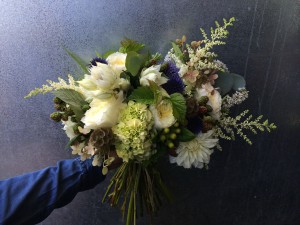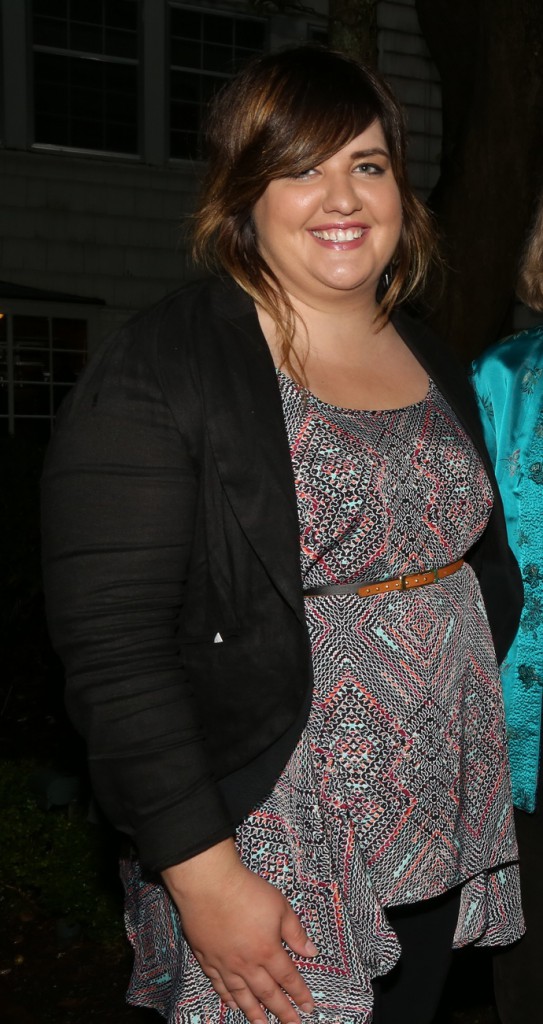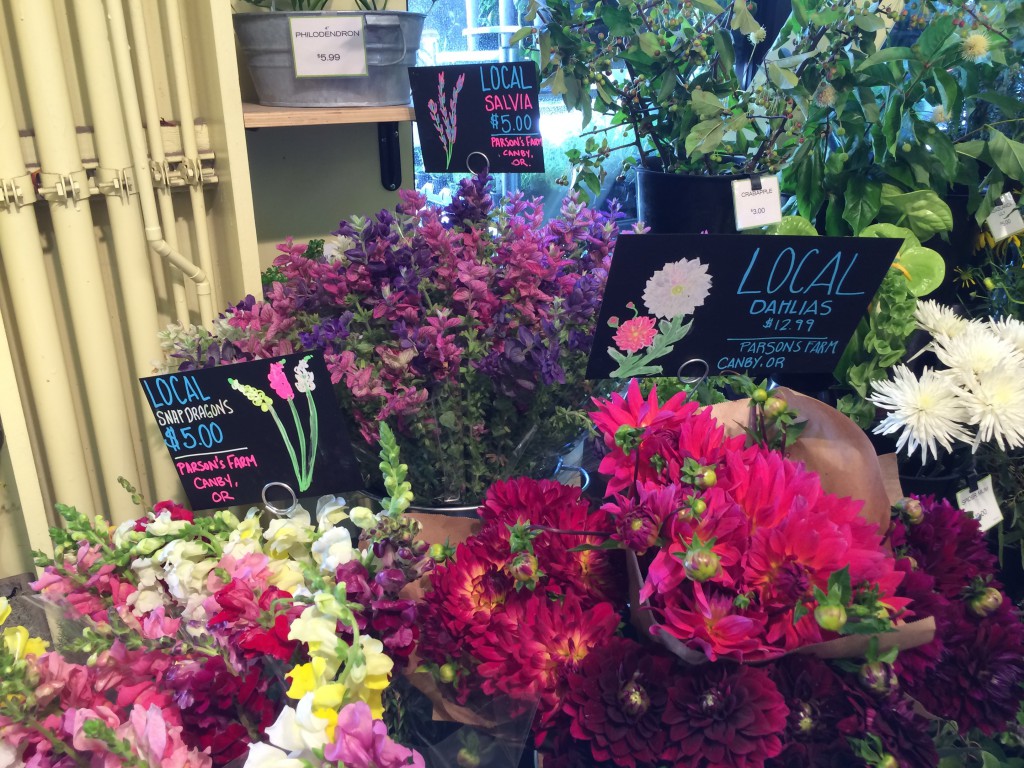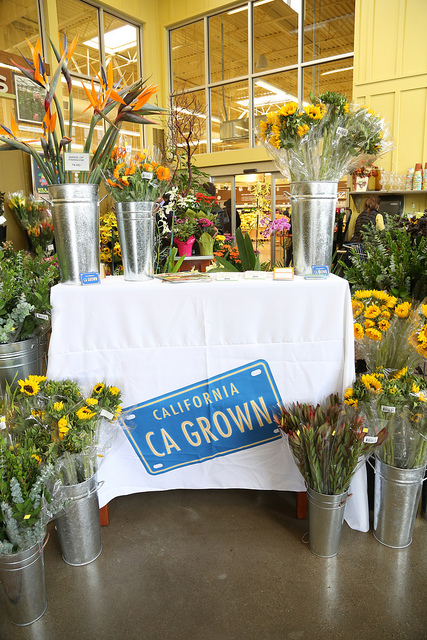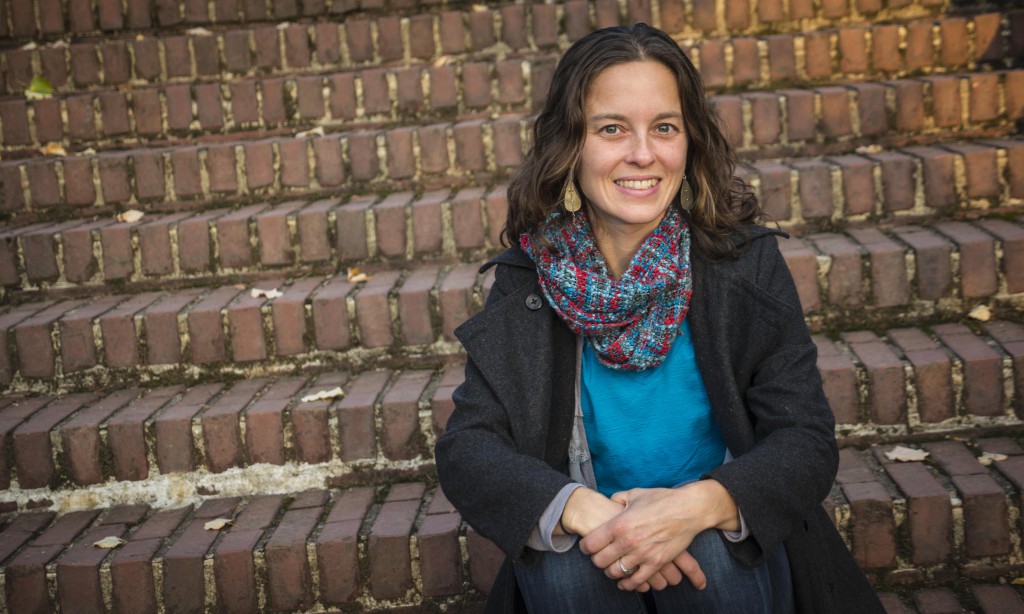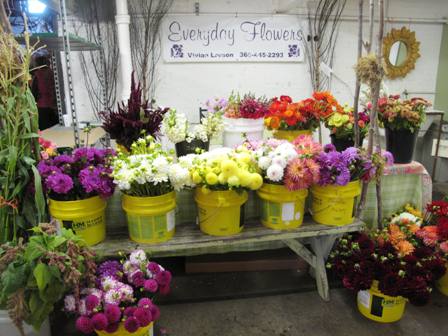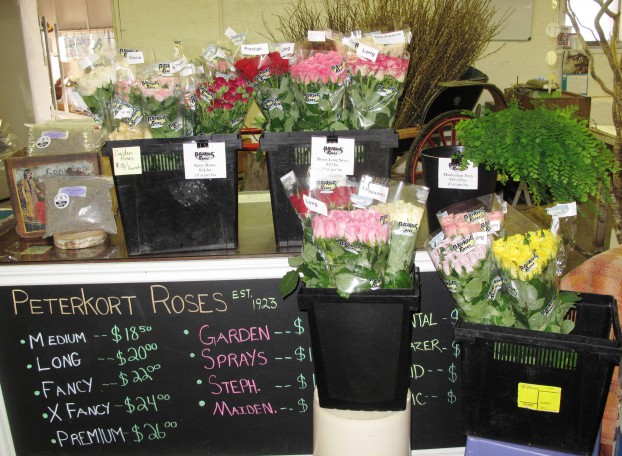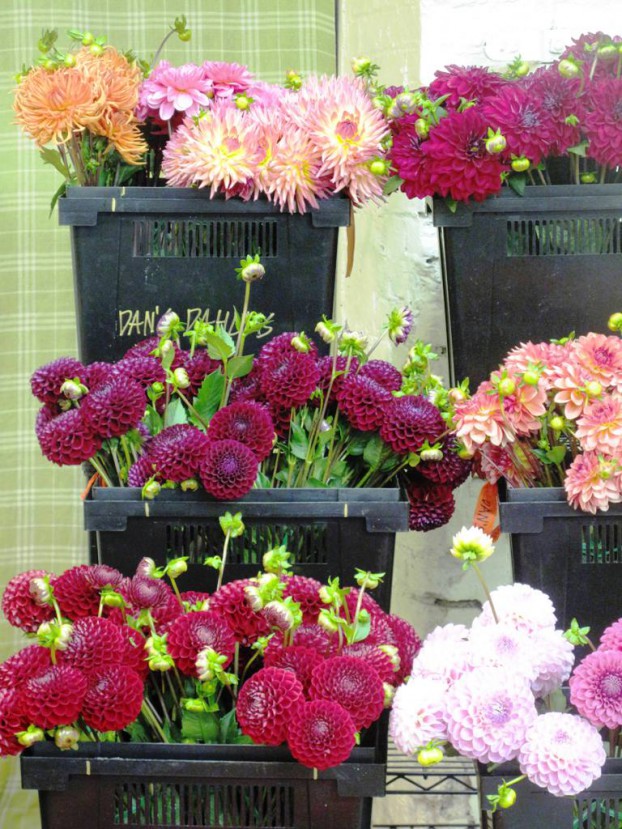Podcast: Play in new window | Download
Subscribe: Apple Podcasts | Podcast Index | RSS | More
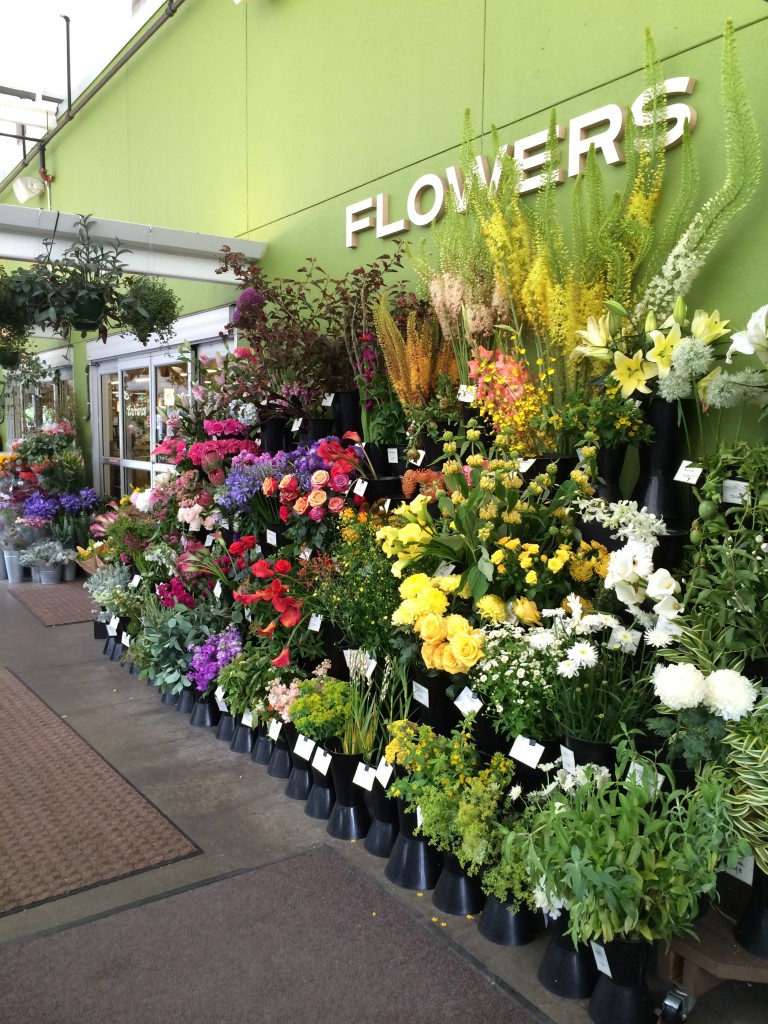
New Seasons Market in Portland Oregon – a rainbow of local flowers in the beautiful floral department.
Did you know that more than 50 percent of all floral transactions in the U.S. take place at the supermarket cash register?
While that statistic may not bode well for the corner flower shop, it does represent opportunity for flower farmers who find a way to work with this ever-changing dynamic.
There are so many reasons for the shift from the corner flower shop to the grocery store, but according to my guests in today’s podcast one of its primary causes is time and convenience.
In other words, consumers are so pressed for time in all facets of their lives that the grocery store has become the one-stop place to purchase not just food, but so many other things.
Think about it: The grocery store, when done well, is now our coffee shop, our bank, our drug store, our greeting card store, our liquor/wine store, our bakery, our deli, and oh, yes, our flower shop.
Please enjoy today’s conversation about the fast-paced world of grocery floral – as I seek to understand where the opportunities are from two perspectives: the floral buyer (the supermarket) and the floral seller (the flower farmer).
Katie McConahay is the floral merchandiser for New Seasons Markets, a Portland-based chain of 13 neighborhood grocery stores. With the motto, “the friendliest store in town,” New Seasons nurtures its local suppliers.
On its web site you will find this message: “As a locally owned business, we take pride in supporting local farms, ranches and other small businesses through our Home Grown program.
“The Home Grown symbol points out products from produce and meat to hand lotions and scented candles that come from local companies. So, you can support the local and regional economy with your dollars. And we can further our strong commitment to sustainable agriculture.”
Unfortunately, there is a lot of lip-service paid to LOCAL and I’ve witnessed first-hand the amount of green-washing that can take place at grocery stores that tell their shoppers one thing and then do something completely opposite that . . . such as trying to pass off imported flowers as local or simply not caring enough to properly label the sources.
After getting to know Katie over the past year, I have to say how impressed I am with her philosophy of transparency about the origins of the flowers she and her employer sell. “Not many people think of buying local when it comes to flowers. Making beautiful selections available from local growers is how we’re making a difference, one stem at a time.”
Katie began her career in floral at the age of 15 when she took a position as a floral clerk at a local grocery store in Milwaukee, Wisconsin.
Early on she decided that she wanted to make unique and beautiful flowers available to everyone, even daily grocery shoppers. She went on to become the youngest ever floral manager for Wisconsin’s largest grocery chain by the age of 18, taking her department to number one in sales in a region with over 60 stores.
Katie has been involved in all facets of the floral industry, from large scale grocers to small, elegant design studios in Portland.
She found her “happy medium” in the New Seasons Market floral program where she began as a floral manager in 2010, eventually assuming the head merchandising position in 2012. Since that time she has nurtured the floral program to unprecedented growth levels adding dozens of local and California vendors in 2014.
Katie remains committed to cultivating relationships with local growers and promoting a sustainable, local floral program that supports small growers while continuing to supply the 13 New Seasons Markets with the very best that the floral industry has to offer.
When I visited Portland last month I scheduled an interview with Katie and I asked her predecessor at New Seasons, Molly Sadowsky, to join us.
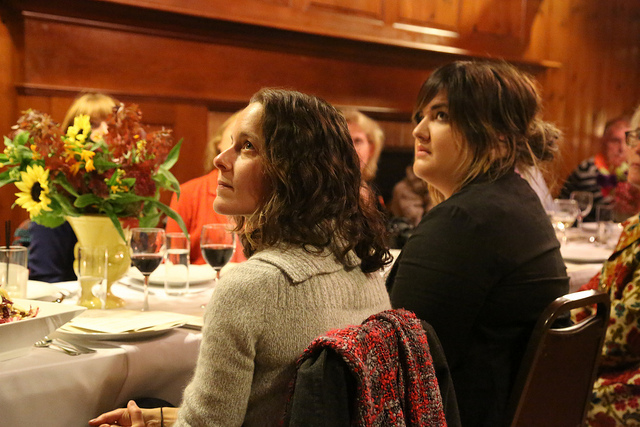
Molly (left) and Katie (right), joined other American-grown advocates to discuss the future of domestic flower farming and floral selling at the CCFC gathering last fall in Portland.
Molly, the program manager at the Seattle Wholesale Growers Market, was the link who first introduced me to Katie. That’s when we all attended the California Cut Flower Commission’s field-to-vase dinner held in Portland last October where I was invited to speak.
At the Seattle Wholesale Growers Market, a cooperative of Northwest flower growers in Seattle’s Georgetown neighborhood, Molly oversees the selling of flowers to grocery customers and maintaining a year-round floral inventory.
Molly is such a valuable asset at the Seattle Wholesale Growers Market. One reason is her background, having previously built and ran the floral program at New Seasons Market in Portland where she initiated a seasonal buying program that relied on product from 80 growers, including more than 50 in Oregon.
Molly embraced the buy-local philosophy as a restaurant owner in the early 2000s, when she forged relationships with local farmers to supply her vegetarian breakfast-and-lunch café. Molly lives in Portland with her husband, Dan, and their six-year-old Belgian Malinois, Leyna.
Thanks to listeners like you, this flower-powered podcast has been downloaded more than 18,000 times. If you like what you hear, please consider logging onto Itunes and posting a listener review.
Please join me in putting more American grown flowers on the table, one vase at a time. I promise that when you tune in next week, you’ll hear another insightful and educational episode of the Slow Flowers Podcast.
This podcast was engineered and edited by Hannah Holtgeerts and Andrew Wheatley. Learn more about their work at hhcreates.net









